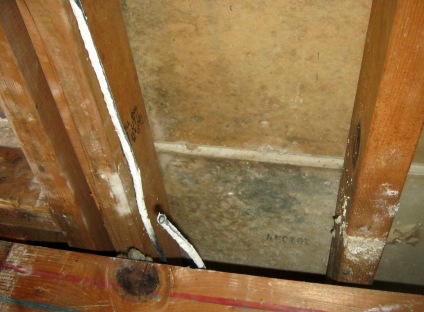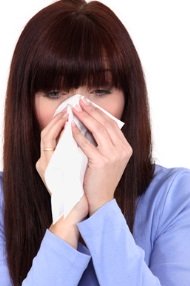Find a Mold Specialist Now
Click or Call, Toll-Free 24/7
Indoor Mold Allergy Treatment
Many people begin a mold allergy treatment by taking seasonal allergy medication, because they don’t know of any other treatments that are available. This treatment for mold allergy problems can be somewhat effective if it is an outdoor mold problem, but many times the symptoms are caused by an indoor mold problem that has gone unnoticed.
Allergy Treatment
The best treatment of course is to reduce your exposure to all forms of mold spores. Unfortunately, outdoor mold problems cannot be controlled, and they get worse in the warmer seasons. During the winter months, many people do not need a treatment for mold allergy problems because the spores remain dormant in the cold weather. The symptoms do not occur during those colder months.
But, as the weather warms up in the spring or summer, the outdoor mold will begin to grow and spread more mold spores throughout the air. During these warmer months, the best mold allergy treatment is to avoid exposure to areas with a lot of outdoor mold. For example, limit your time near straw and hay and heavy vegetation. It is also a good idea to limit outdoor yard work activities such as mowing the lawn, gardening, or raking leaves.
Indoor Mold Allergy Treatment
One of the biggest problems with the standard treatment for mold allergy symptoms is that people automatically assume that outdoor mold is causing their symptoms, when indoor mold could be the culprit. If you suspect that indoor mold is a problem, it is a good idea to hire a mold tester who can come into your home and test the air for mold spores. They will actually test the levels both inside and outside - if the levels are higher inside, or if a different type of mold is found, then you know you have mold growing inside your home.
You can follow this link to get a list of Certified Mold Testers in your area.
In the case of indoor mold, the best treatment for mold allergy symptoms is to completely get rid of the mold with a thorough cleanup process. Cleaning up the mold will reduce your exposure to mold spores, which in turn will eliminate the symptoms.
Sometimes, people assume that they can clean up a mold problem on their own, so they proceed with the mold cleanup without learning about the proper cleaning techniques. Cleaning up mold on your own may actually cause more of a problem, because cross contamination and higher levels of exposure may occur. You should always consult with a professional to be sure that your family is safe.
Avoiding Mold Problems
Once you have identified and eradicated the mold within your home, you still need to focus on mold allergy treatment by preventing the mold from returning. Prevention is much easier and more effective than treatment, and it is easy to prevent mold if you know what to watch for.
Mold tends to grow in damp areas within the house. Watch for leaky pipes, condensation on the windows, or rooms with high humidity and poor circulation such as the bathroom. Always repair any leaky pipes as quickly as possible, and prevent high levels of humidity within the home by using a dehumidifier in the rooms that may become damp. For example, many people in humid climates use dehumidifiers in their basements, because the basement is often damp… which makes it the perfect breeding ground for mold.
If your symptoms come back, you should consult with a medical professional as well as a mold cleanup specialist in order to get rid of the mold exposure that you are experiencing. Sometimes, indoor mold may return if the conditions are right, which is why it is so important to have a mold specialist give you advice and work with you on eliminating the problem.

This picture shows mold in an attic. The homeowner was suffering from allergies and had his house professionally tested for mold. After the test came back positive this mold problem was found.
Why We Recommend Scheduling a Free Consultation with a Mold Cleanup Specialist
- While medical treatment is certainly helpful for mold-related allergies, as long as you continue to suffer exposure to mold, your symptoms will not resolve completely and you’ll continue to require treatment. If you want to get well, you’ll need to get the mold cleaned up.
- If you have allergies to mold or are experiencing other mold-related health problems, we recommend hiring a professional to clean up the mold for you. Cleaning up mold yourself will only expose you to further health risks.
- Mold cleanup specialists usually offer free consultations, so they will visit your home, assess the situation, and advise you about the best course of action at no cost to you. Even if you opt not to hire a professional, you can benefit from some free professional advice.
To schedule a free consultation with a mold cleanup specialist in your area, just follow the link.
Return From Mold Allergy Treatment To Symptoms Of Mold Allergies
Black Mold Health Symptoms Home Page





